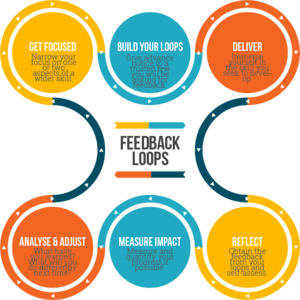FASTLEADER BRIEFING
It is important to recognise and value the diversity and differences that exist within an organisation and to leverage these. Greater inclusion in the workplace has been shown to drive higher engagement levels and performance as well as supporting the achievement of business goals.
Unfortunately, differences are not always embraced. Managers often lead through the lens of several types of unconscious bias. An unconscious bias relates to the attitudes, beliefs and opinions about people that operate outside our awareness, yet they have a significant impact in determining our judgement and our behaviour towards others. Biases are formed through culture, personality, and individual and work experiences. While a bias is not necessarily a problem, it can become one if it prevents a leader from behaving in an impartial way.
Here are four types of commonly occurring biases that can have a significant impact on how you lead:
Definition Example Homophily ‘Love of the same’ - the tendency to associated with people like us. “Tom is likely to be great for the role; he went to the same university I did.” In-group vs. Out-group People who share our particular qualities are included in the ‘In’ group = US Those who do not share the same qualities form part of the ‘Out’ group = THEM We need to feel part of a group, and we treat those in it more favourably than those who are not. Mark and Dave play golf with Fred, the CEO. They also have been awarded the most prestigious accounts lately and have had opportunity to present to the Board. Sam can’t play golf and while he is at the same managerial level, he hasn’t been afforded the same opportunities nor a reason. Stereotype Stereotypes are over-simplified opinions that do not account for individual differences. There’s no point promoting women as they will all just leave and have kids anyway. Men are better at negotiating tough deals. Gen Y employees are demanding and feel entitled to promotions without working for them. Confirmation The tendency to search for or interpret information and behaviours in a way that confirms what we already believe. “Jack’s only been here 6 months and he already wants a pay rise. I told you all Gen Y employees just feel they deserve everything right away.”It’s important for you to consider when your biases may be influencing your decision making and your behaviour towards others. What might the impact of that bias be?
-
Recruitment
-
Promotion
-
Recognition and reward
-
Opportunities
-
Consultative process
-
Performance management
Change unconscious reactions to considered awareness of potential biases and make a positive difference to your leadership style and your organisation.
Challenge yourself by asking: Increase self awareness/seek feedback * When am I listening? * When am I shutting people out? * Who am I including or excluding? * Who am I encouraging and praising? * Whose contributions am I taking for granted * Do you feel included, valued, respected? * What behaviours exclude people? * What behaviours encourage contribution? * What can I do differently? * What can the team do differently?Give us your considered feedback on how you’re doing at the Fastlead Forum.
The lesson from unconscious bias
Change unconscious reactions to considered awareness of potential biases and make a positive difference to your leadership style and your organisation.




